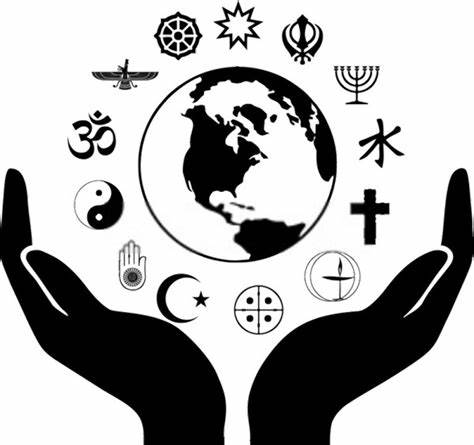The Truth about Religion

In today's society, people have more freedom and choice when it comes to religion than ever before. While education and media present numerous religious philosophies, Western societies allow for a wide range of religious expression. As a result, individuals must decide on their own religious commitment. But how can one make this decision?
What are religions?
Religions have been used to explain the inexplicable and justify actions. In the ancient world, where knowledge was limited, natural phenomena were often attributed to higher powers. Ancient religions featured gods and goddesses in every aspect of life, such as the Greeks' belief in Zeus as the ruler of the gods and the Hindus' multiple deities including Brahma the creator, Vishnu the preserver, and Shiva the destroyer. The spread of Islam and Christianity (which originated as a split from Judaism) introduced the idea of monotheism to the world. Judaism, Christianity, and Islam, known as the Abrahamic religions, are practiced by approximately 55% of the world's population and all share the belief in one God, the "God of Abraham," as the sole creator of the universe. These religions differ in their beliefs, traditions, and histories. Currently, 26 religions make up 99% of the world, each with its own philosophy, theology, laws, and accounts of history. So how can one choose which religion, if any, to follow?
To answer this question, we will examine three aspects of religion: tradition, practical advantages, and truthfulness.
Traditions
Most religions have longstanding traditions that have survived for thousands of years. These traditions often involve celebrations, stories, and, in the case of the Aztecs, sacrifices to please the gods. The Hindu festival of Diwali celebrates the victory of good over evil and the Jewish holiday of Passover celebrating freedom from slavery. These traditions are passed down through generations and eventually to individuals, who can either pass them on to their children to continue the chain or break it by ignoring their ancestry, breaking a chain that has lasted thousands of years. Either way, traditions are vital to the longevity of religions; without them, many modern religions would have been lost long ago.
Practical advantages
A religion's practical advantages can be evaluated based on the goals and values it serves. These can be personal, relating to spirituality, morals, and meaning. For instance, Buddhism emphasizes the concept of mindfulness and the importance of living in the present moment, while Judaism teaches the values of charity and kindness. Another way is societal, contributing to stability. For example, the Egyptians believed that the pharaoh was a god, which helped to unite their civilization under a single, unchallenged ruler. The Saxons in ancient England believed that the king was chosen by God to do his work, which they used to justify various military conquests. Religions provide a core philosophy for living, guiding individuals through life and offering advice and meaning as they navigate it. Additionally, prayer, which can be found in almost every religion, can be used as a daily meditation tool to cultivate gratitude and think through problems and goals. Research has even shown that prayer and other spiritual practices can have positive effects on mental health and overall well-being.
Truthfulness
Truth is the main reason people believe. Without truth, there is no reason to practice religions with their many laws and restrictions. Truth evaluates a religion's accuracy in describing the real world. Most religions contain descriptions of various aspects of life and the universe, including the origin and sometimes the end of the universe, the nature of humans and their future, and the fundamental forces that affect nature. These descriptions are often found in various scriptures.
Which religion is right for you?
The decision of which religion to follow can be a challenging one. By considering a religion's traditions, practical advantages, and truthfulness, individuals can make an informed decision that aligns with their values and goals. It is important to remember that every religion has its own unique beliefs and practices, and the choice ultimately comes down to personal preference and what feels most meaningful and fulfilling to the individual. It is also worth considering that one does not need to strictly adhere to one religion, and it is possible to find elements of truth and value in multiple traditions. However the most important thing is to strive for personal growth and to lead a life that is fulfilling and in accordance with one's values and beliefs.